
Cherry blossoms outside St Paul's Cathedral are a springtime treat in central London.
© Larysa242424/ Shutterstock
Cherry trees and their beautiful blossom: Where and when to see it in the UK
Emily Osterloff
Keep an eye out in early spring and you may be lucky enough to spot the delicate pink and white blooms of a cherry tree.
Discover when you can see cherry blossom in the UK, which cherry species grow wild here and some of the most spectacular spots to visit.
Cherry trees belong to a group of around 430 species of plants in the genus Prunus. These produce stone fruits and also include plum, peach, and almond trees.
People have cultivated hundreds of cherry tree varieties over time. These plants share several key features, such as serrated leaves, bark with distinctive horizontal bands, clusters of flowers in shades of pink and white, and roughly circular fruits with a single seed.
'Cherry blossom' generally refers to the flowers of ornamental cherry trees, rather than those that produce cherries for eating, though these do flower too.
When do cherry blossoms bloom in the UK?
Cherry blossom is a classic sign of spring, but exactly when cherry trees bloom in the UK varies depending on the location and the weather.
Most of the common cherry trees planted in the UK blossom in April. Mild winters can result in the trees flowering earlier, sometimes in March, but in cooler years they might not do so until May. In London, and other particularly warm and sheltered locations, cherry trees can sometimes burst into flower as early as February.
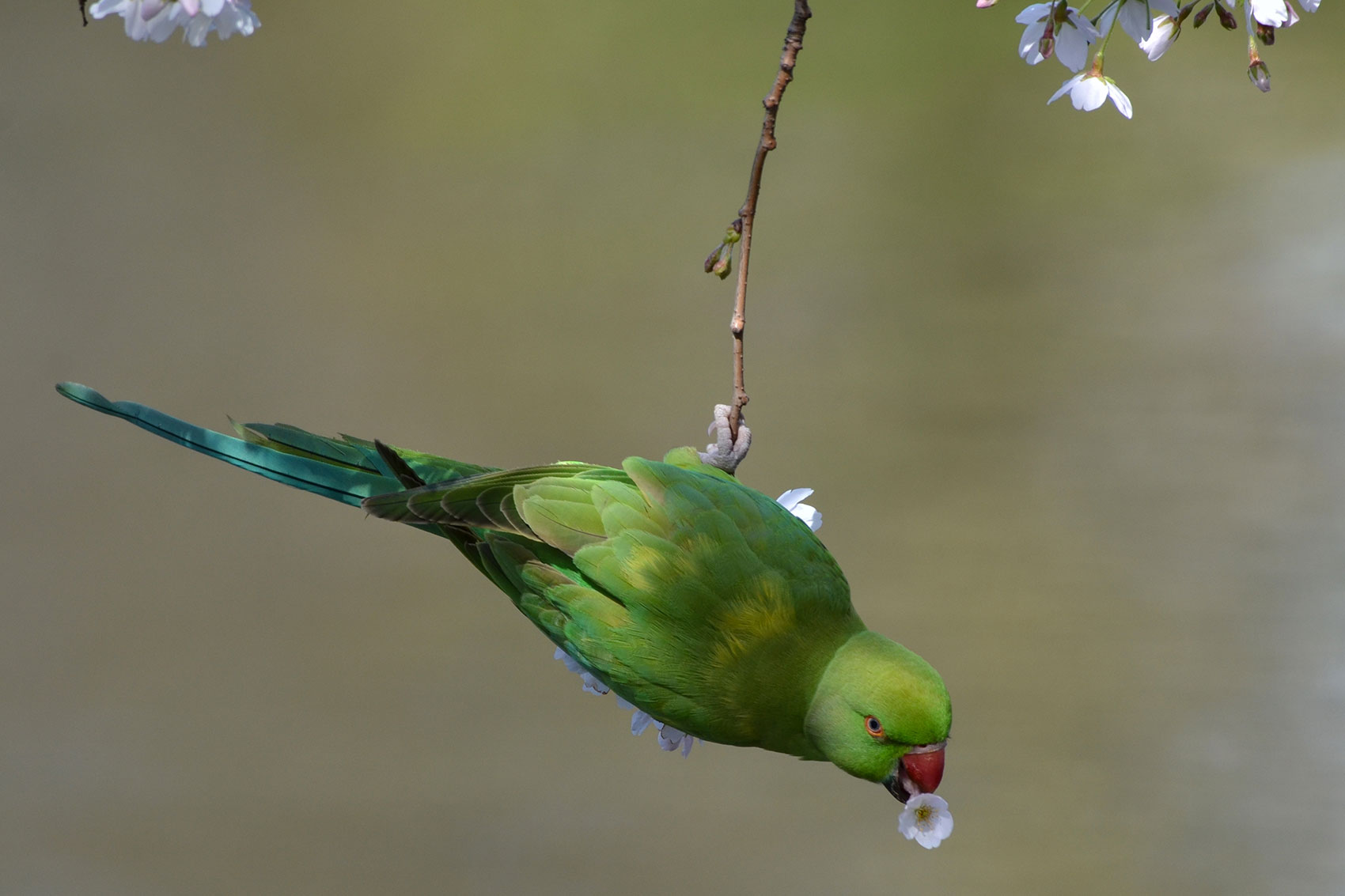
Cherry trees can provide tasty treats for animals. Here a wild parakeet snacks on a flower in one of London's Royal Parks.
© Cristian Gusa/ Shutterstock
Different varieties of cherry trees bloom at slightly different times. One of the earliest is the winter cherry, Prunus subhirtella 'Autumnalis'. This tree's flowers appear in autumn and last nearly to the end of winter. The spring blossoms of other cherry tree varieties usually last for just a few weeks.
Where to see cherry trees in the UK
Cherry blossom is intrinsically tied to the history and culture of Japan, where the flowers are known as sakura. The tradition of viewing them is known as Hanami, and it stretches back at least 1,000 years.
Today, people from all walks of life celebrate the annual blooming of cherry trees. Many see in this return of spring through festivals called Sakura Matsuri.
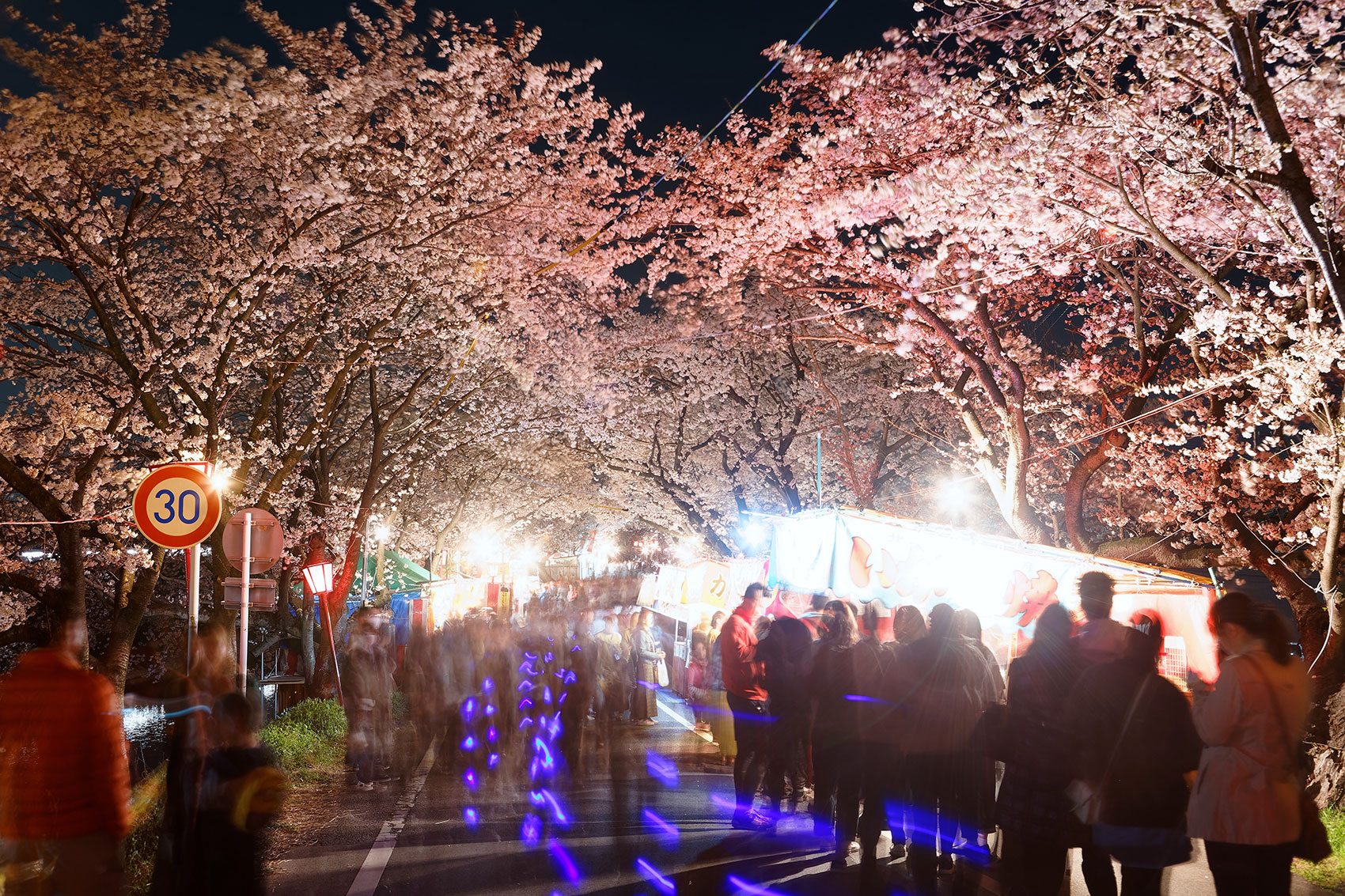
People stroll by a temporary market under blossoming cherry trees in Japan. This is part of Sakura Matsuri in the city of Ōgaki.
© CHEN MIN CHUN/ Shutterstock
But you don't have to plan a trip to Japan to see cherry trees blooming. Thousands of locations around the world offer opportunities to enjoy the cherry blossom season. There are many great spots across the UK where you can walk beneath clouds of pink and white petals.
Top cherry blossom locations in London
We're spoilt for choice with places to see cherry blossom in London.
With their manageable size and annual delicate floral displays, cherry trees are a popular choice in parks and gardens, and they survive well in urban environments so can often be spotted lining our streets. In fact, several streets close to us in South Kensington sport a bright pop of pink in spring!
Visit one of the Royal Parks and you'll see more cherry trees than ever before. In 2019, Japan gifted the UK 25 new cherry trees which were planted as part of the Japan-UK Season of Culture 2019-2020.
Here are some of the top places to look out for cherry trees in London.
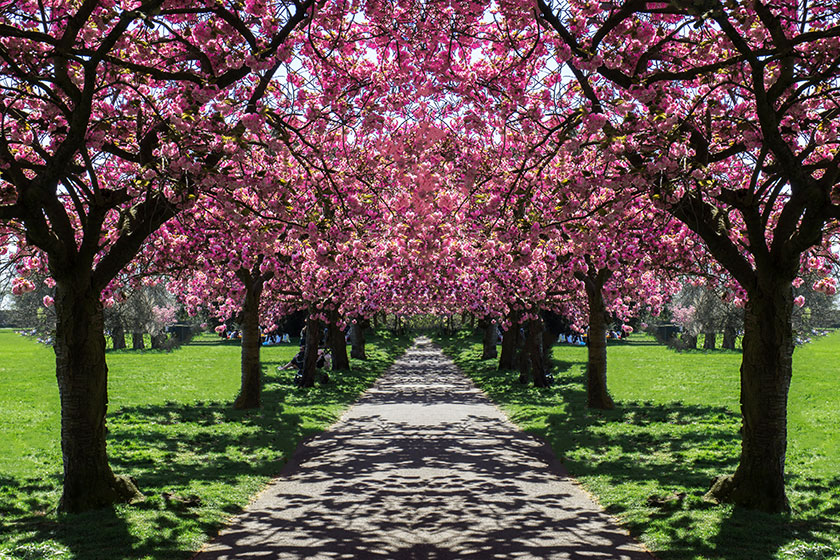
Greenwich Park
© Martell Brighten/ Shutterstock
Greenwich Park is regarded as having one of the best collections of cherry blossoms in the UK.
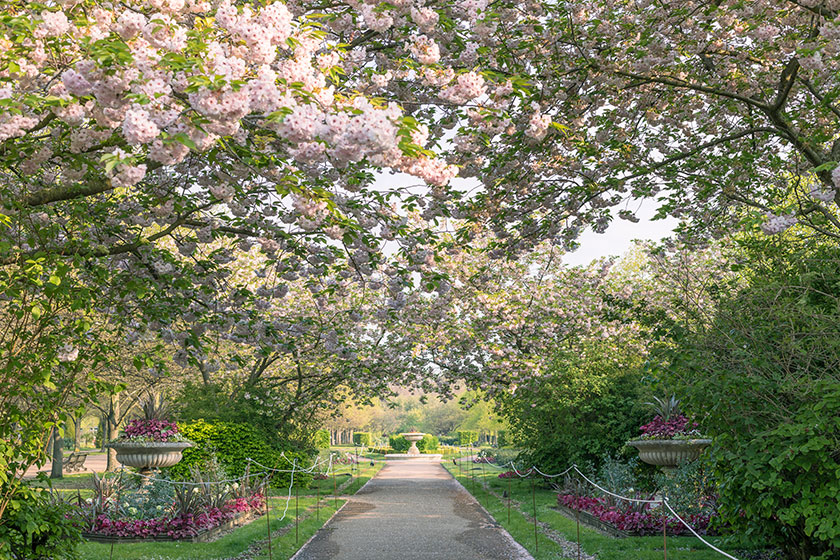
Regent's Park
© Kate Shi/ Shutterstock
You can find cherry trees lining paths in Regent's Park.
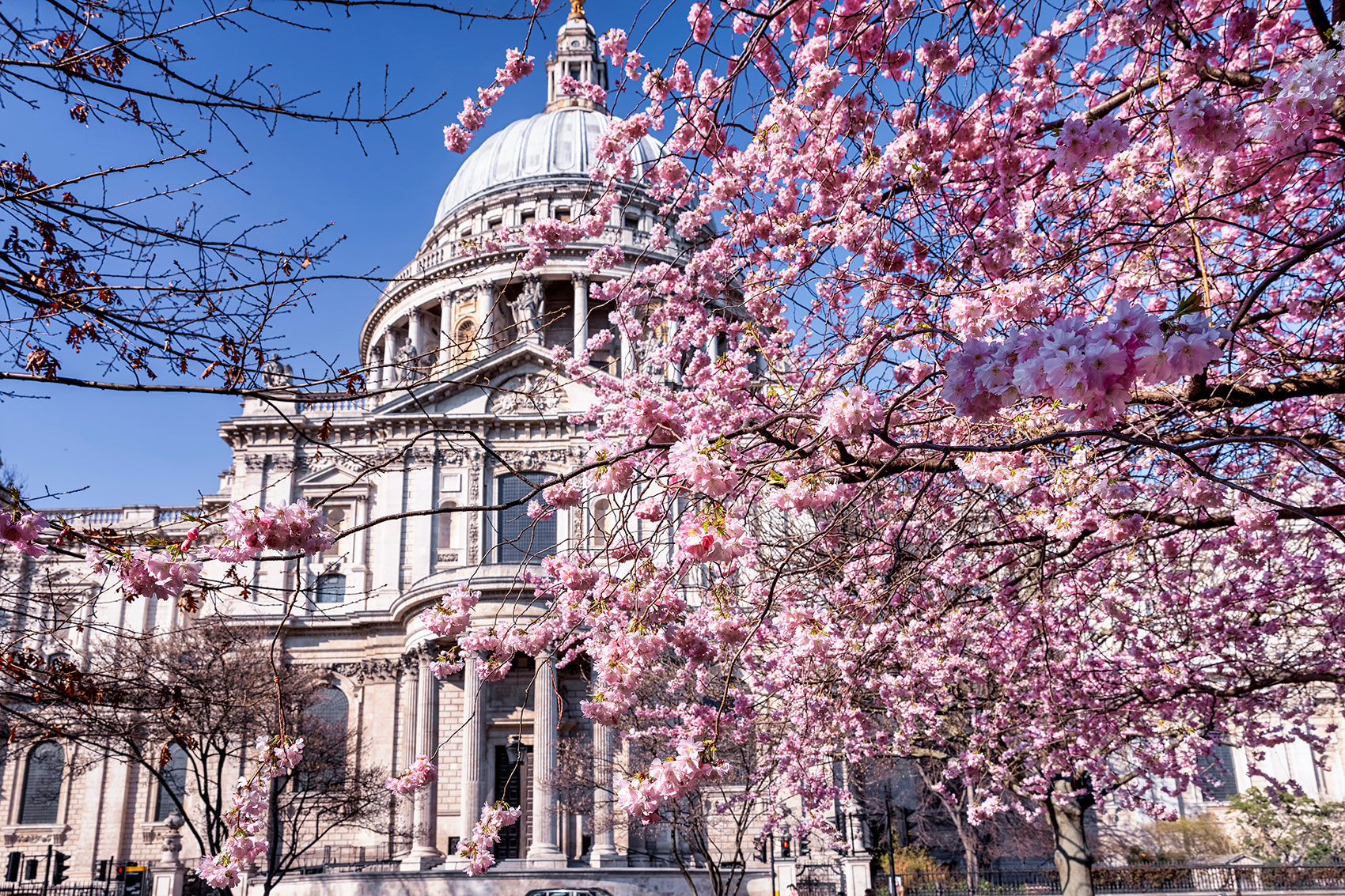
St Paul's Cathedral
© Sven Hansche/ Shutterstock
St Paul's Cathedral features a picturesque splash of pink in the springtime.
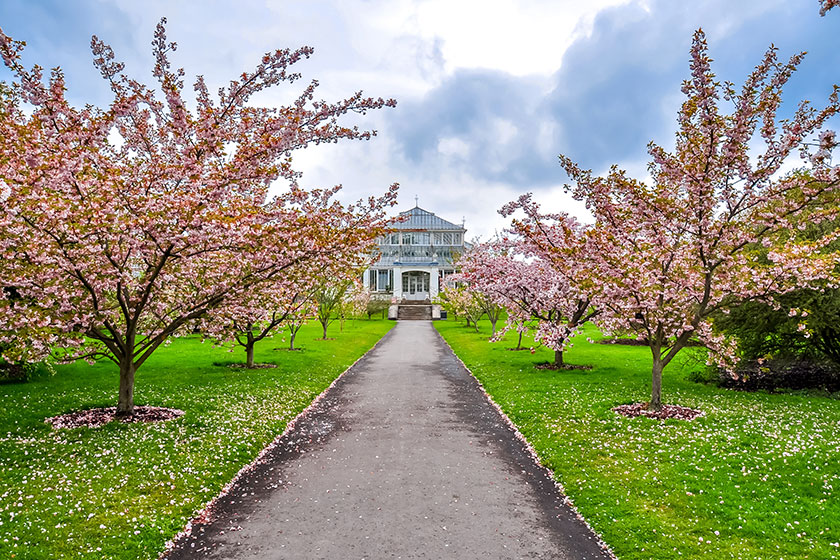
Kew Gardens
© Mistervlad/ Shutterstock
You can walk among a variety of cherry trees at Kew Gardens. These blossoms line the path up to the Temperate House.
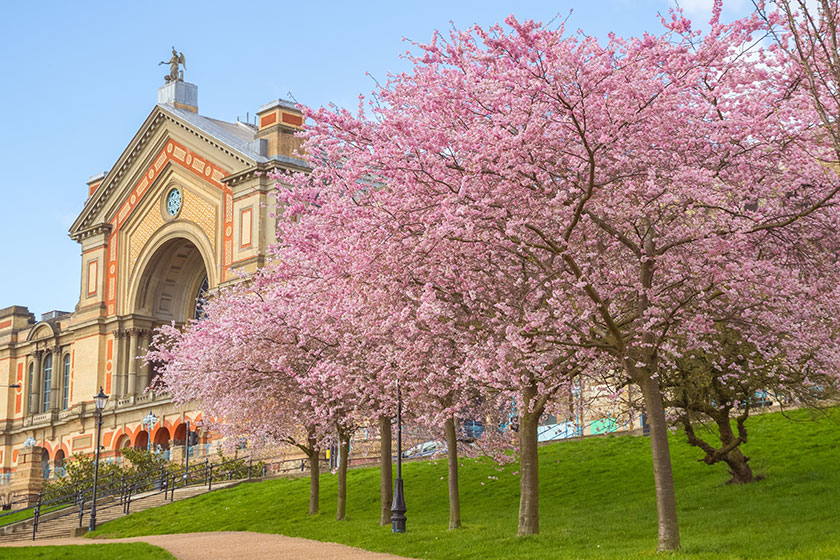
Alexandra Palace
© I Wei Huang/ Shutterstock
Cherry blossoms are a welcome reward after traversing the steep incline to Alexandra Palace.
Other London locations include:
- Battersea Park
- Crouch End
- Kensington Gardens
- Kyoto Garden in Holland Park
- Notting Hill
- St James's Park
Highlights elsewhere in the UK
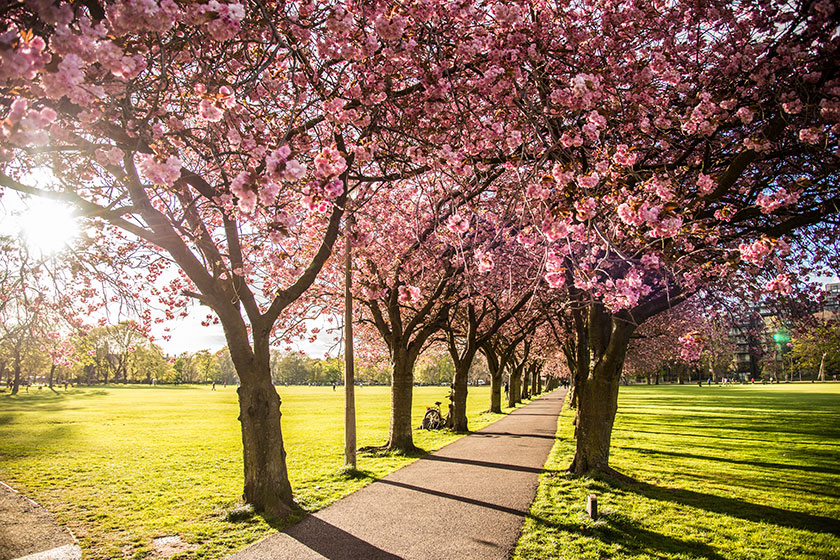
The Meadows, Edinburgh
© Sangkunn/ Shutterstock
The Meadows park in Edinburgh is one of the prime locations for cherry blossom viewing in Scotland.
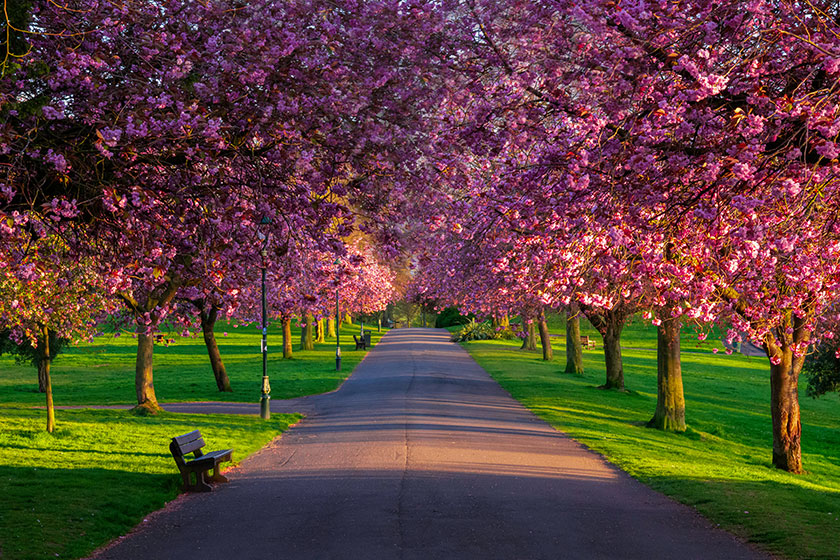
Pittencrief Park, Dunfermline
© Scotland's scenery/ Shutterstock
Visit Pittencrief Park, Dunfermline, in spring and you'll witness an explosion of colour as the cherry trees bloom.
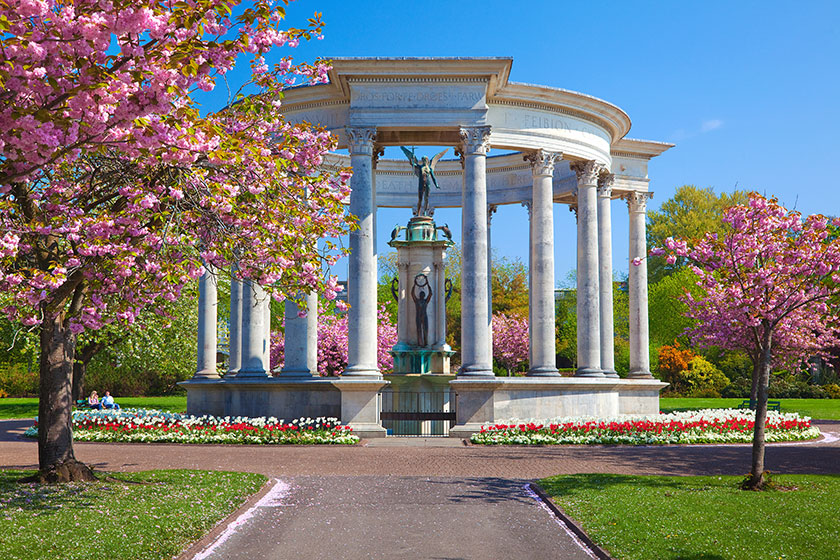
Alexandra Gardens, Cardiff
© Billy Stock/ Shutterstock
Cherry trees surround the Welsh National War Memorial at the centre of Alexandra Gardens in Cardiff's Cathays Park.
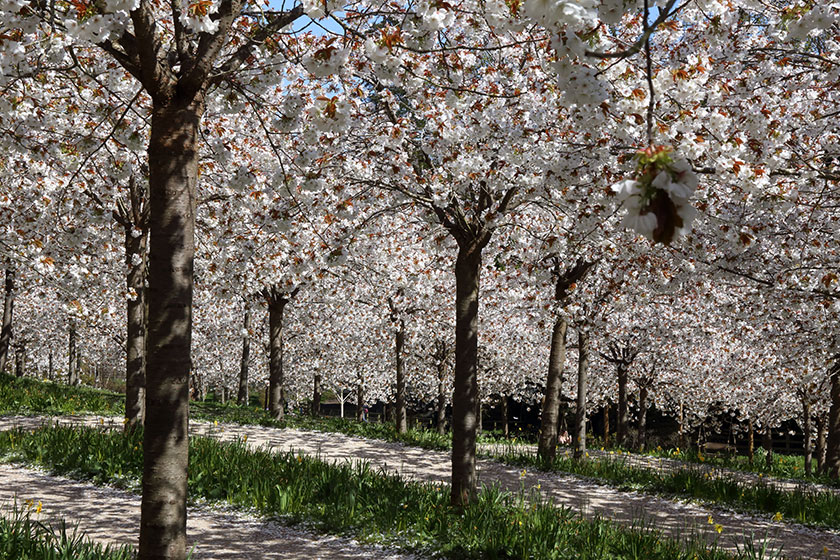
Alnwick Gardens, Northumberland
© george green/ Shutterstock
The large formal gardens next to Alnwick Castle in Northumberland feature an impressive display of flowering cherry trees when spring arrives.
More viewing locations in the UK:
- Keele University, Staffordshire
- Sizergh Castle, Cumbria
- Tatton Park, Cheshire
- The National Botanic Garden of Wales, Carmarthenshire
- The Royal Horticultural Society Gardens at Wisley and Rosemore.
- The Stray, Harrogate
Wild cherry species in the UK
Two cherry species are native to the UK – the wild cherry and the bird cherry.
Britain is also home to the sour cherry though this is known as an archaeophyte – a non-native species that was introduced before the sixteenth century.
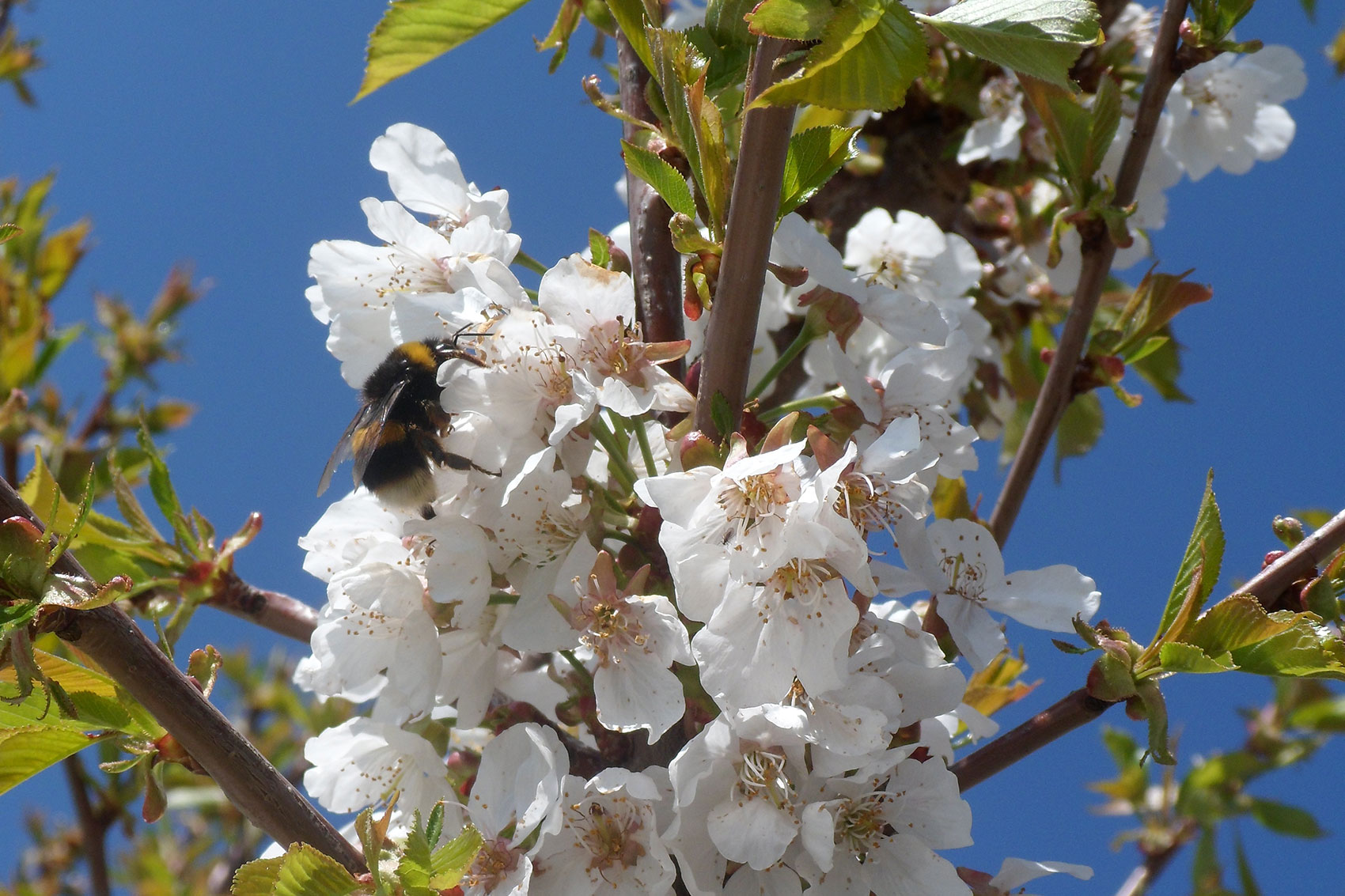
Cherry trees are an important source of food for animals including birds, insects and mammals.
© Pizarros (CC BY-SA 3.0) via Wikimedia Commons
Wild cherry, Prunus avium
Wild cherry is sometimes also known as Gean. This is the tallest cherry in Europe, reaching up to 30 metres high and can be found growing in woodland and hedgerows. It's also grown as an ornamental tree in parks, gardens and along streets.
Wild cherry blooms in April with a cluster of two to six white flowers bursting from each bud. Its red cherry fruits appear around July and are food for birds and mammals, which in turn help to distribute the plant's seeds.
This species is found across Europe, North Africa and Western Asia.
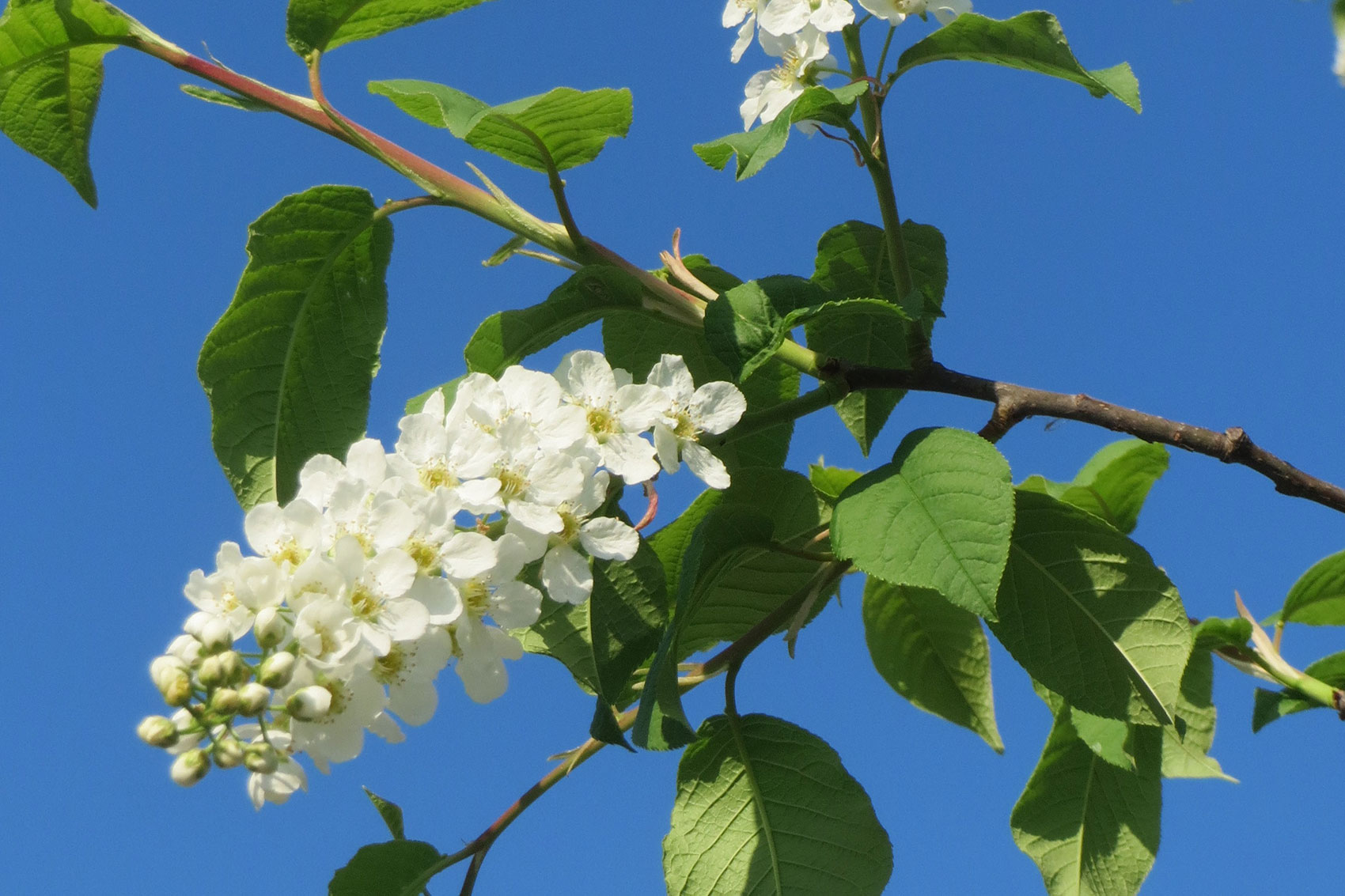
Bird cherry's flowers grow in a dense cluster along a stalk
Image via Wikimedia Commons (CC0 1.0)
Bird cherry, Prunus padus
Bird cherry produces white flowers that have a distinctive almond scent. These bloom in a dense cluster along a stalk (called a raceme) and usually flower in May.
This tree produces globular black fruits that are very bitter – though they're still an important food source for animals.
Bird cherry is often found in wet and upland woodlands, alongside streams and also in hedgerows. Like wild cherry, this tree produces oval leaves with serrated edges, though the 'teeth' are smaller on this species.
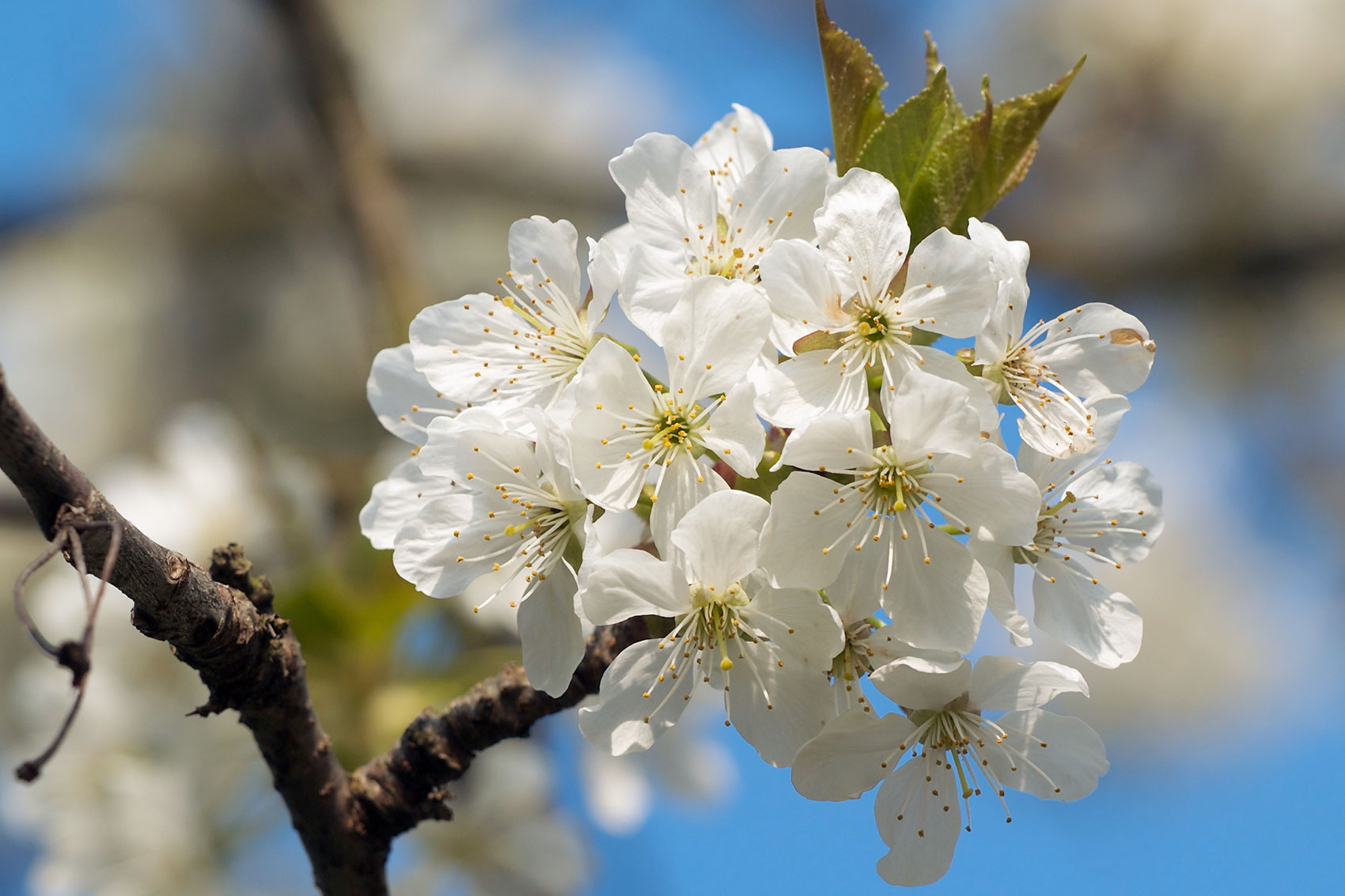
Sour cherry grows wild in the UK, but isn't a native species.
© Jörg Hempel (CC BY-SA 2.0 DE) via Wikimedia Commons
Sour cherry, Prunus cerasus
Sour cherry has bright white flowers that grow in clusters of two to six. These usually appear in May, making this one of the latest blooming cherry trees.
The round fruit of this tree can be bright red to near black, though it grows on shorter stalks than the bird and wild cherry. You'll find this tree in hedgerows, copses, and at the edge of woodlands.
A variety of this tree produces morello cherries, which are commonly used in cooking and baking, as well as in producing the colourless brandy Kirsch.
Other Prunus species in the UK
A number of cherry trees and their close relatives have been introduced to or are cultivated in the UK.
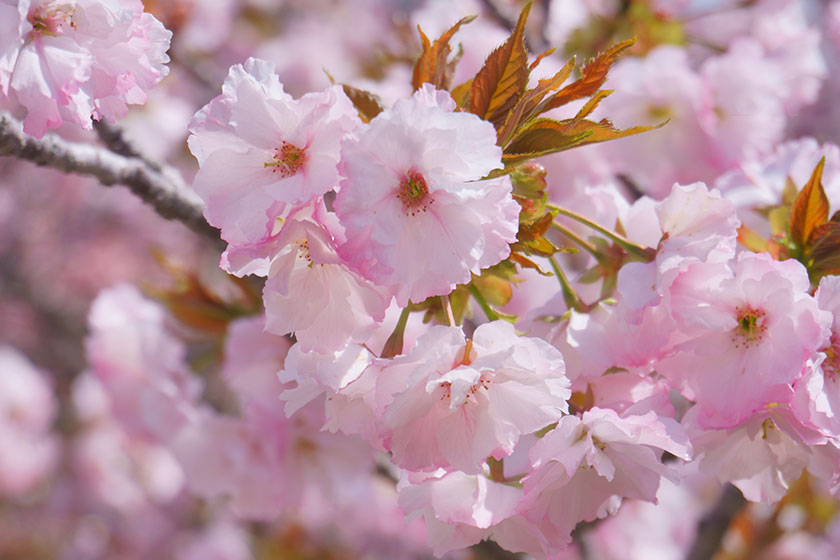
Prunus serrulata 'Hokusai'
© 掬茶 (CC BY-SA 4.0) via Wikimedia Commons
Japanese cherry, Prunus serrulata
This tree is sometimes referred to as the Oriental cherry.
It is thought the species originated in China before being introduced into Japan, and since then innumerable cultivars have been raised from it. They all have big, sharply toothed leaves.
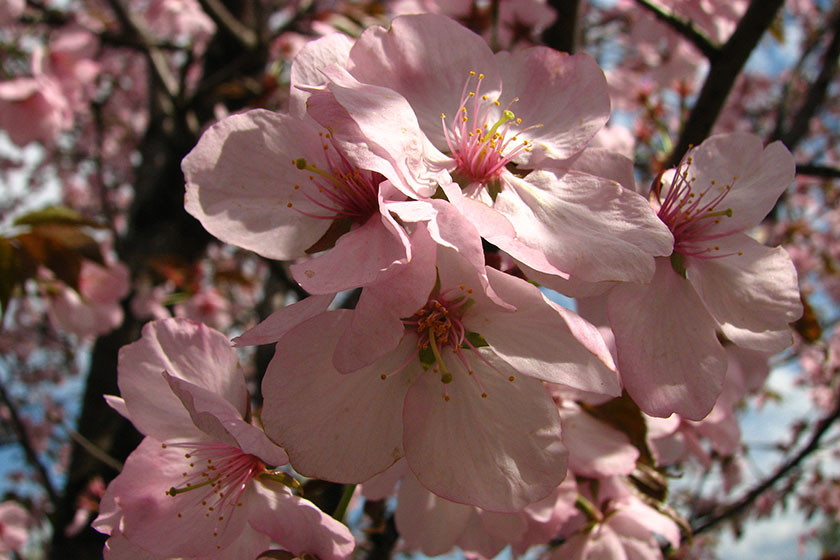
Prunus sargentii
© Kor!An (Андрей Корзун) (CC BY-SA 3.0) via Wikimedia Commons
Sargent's cherry, Prunus sargentii
Sargent's cherry blooms in around mid-April. Four to five rosy-pink flowers grow in clusters.
The species is named after American botanist Charles Sprague Sargent.
It's native to Japan, Korea and Sakhalin, a Russian island north of Japan.
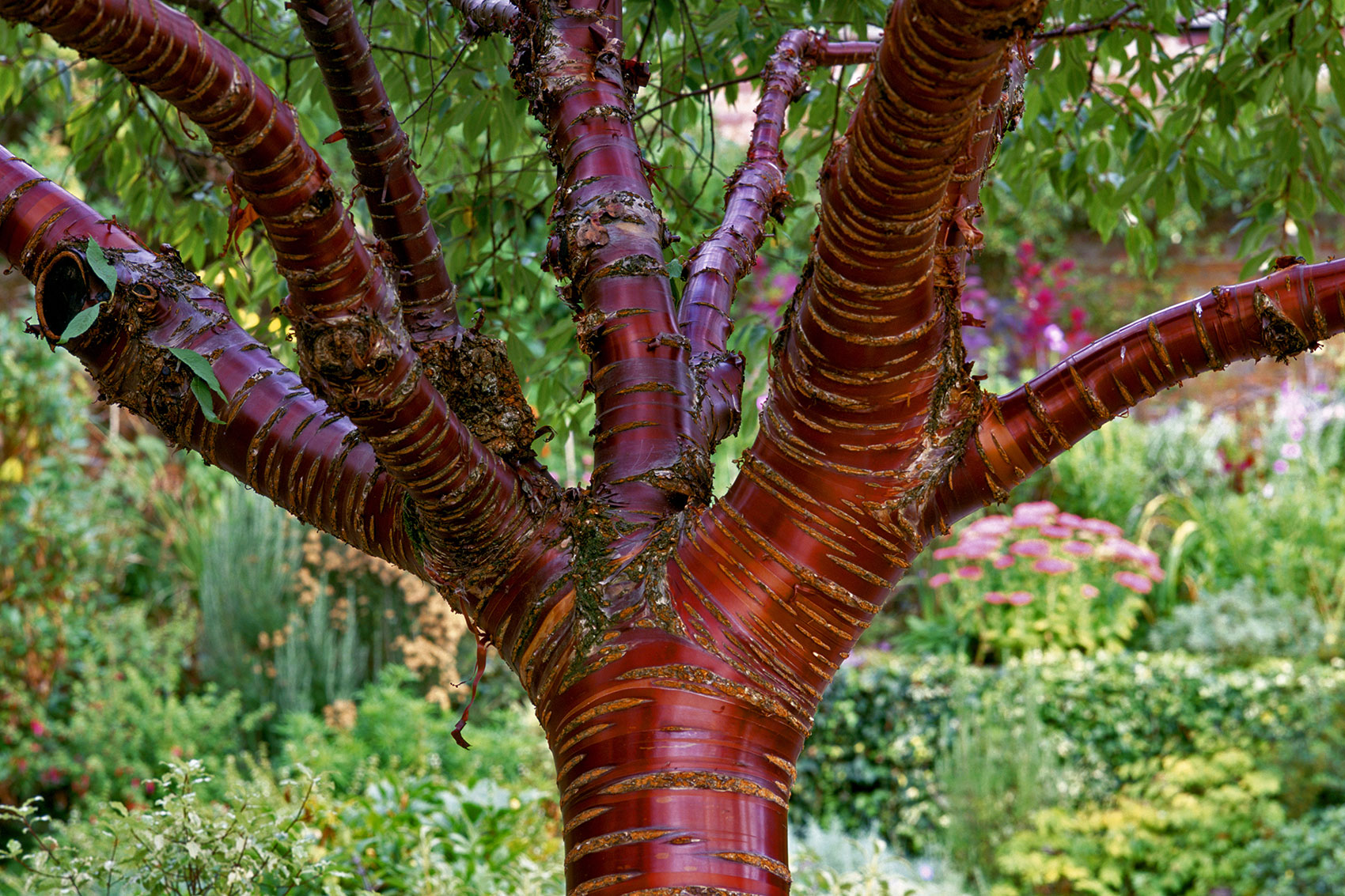
The Tibetan cherry is also known as the birchbark or paperbark cherry.
© Gardens by Design/ Shutterstock
Tibetan cherry, Prunus serrula
Rather than being grown for its flowers, this small tree is often admired for its fantastic bark, which is a bright and glossy mahogany-red colour.
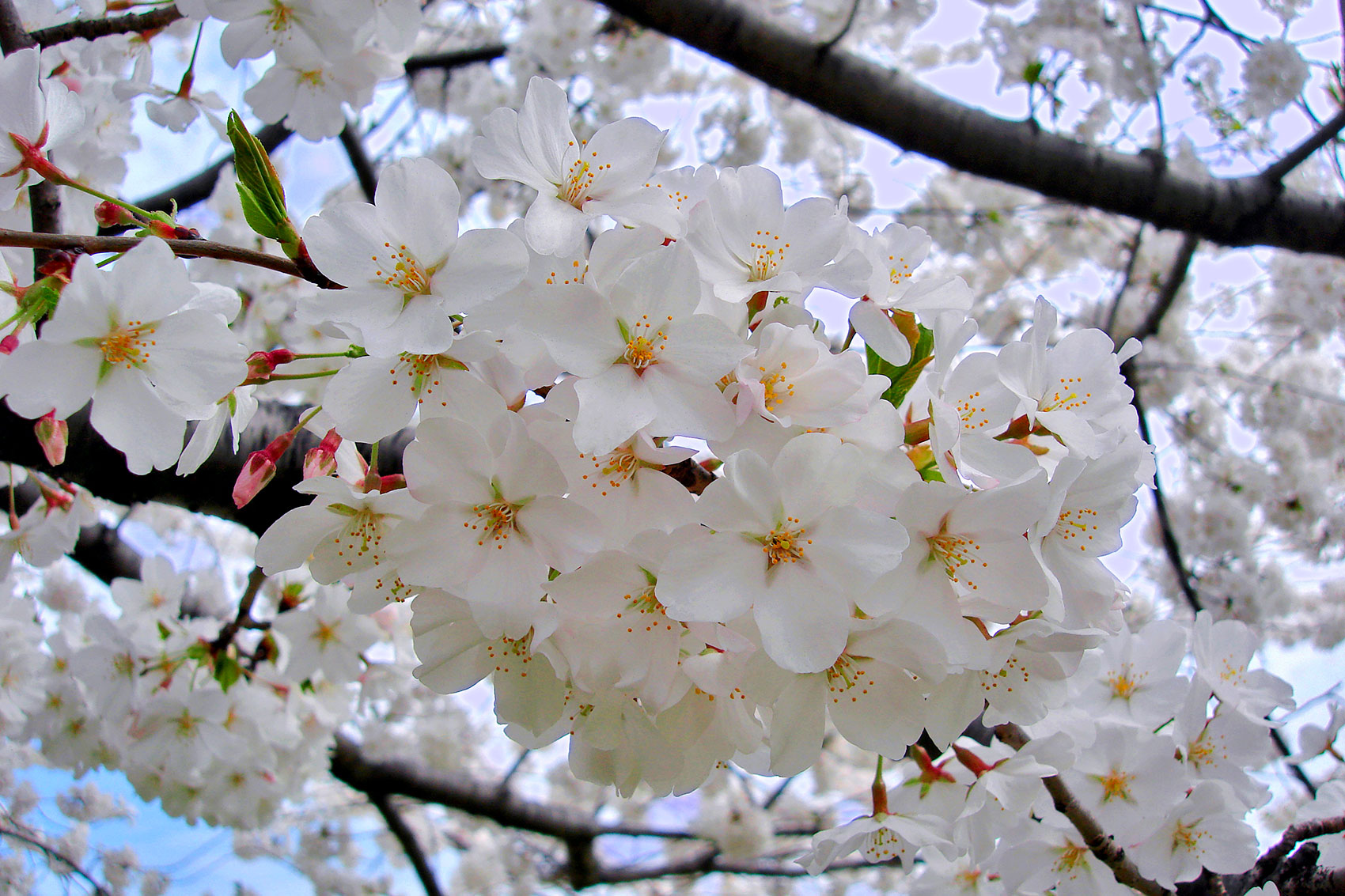
Somei-yoshino is one of the most commonly grown varieties of cherry tree
© Uberlemur (CC BY-SA 3.0) via Wikimedia Commons
Yoshino cherry, Prunus x yedoensis
The white-flowered, rapidly-growing Yoshino is one of the most commonly planted cherry cultivars.
It's also known as Somei-yoshino and is a hybrid of the Oshima cherry (Prunus speciosa) and Prunus pendula f. ascendens. It's cloned from a single tree and grafting has been used to propagate this plant all around the world.
Its name comes from Somei village, which is now part of Toshima City in Tokyo, and Mount Yoshino, part of a UNESCO world heritage site and famous for its groves of flowering cherry trees.

In spring, cherry blossom casts a wave of pink across Mount Yoshino
© beibaoke/ Shutterstock
Mount Yoshino in Nara Prefecture, Japan, attracts many visitors when its some 30,000 cherry trees bloom. The mountain and its surroundings include several important religious and pilgrimage sites, and the abundant blossoms have inspired folk songs and poetry for centuries.
How will climate change affect cherry blossoms?
Thanks to the long-held traditions of cherry blossom viewing, there are long-term records of when cherry trees have flowered to look back on. Even during the blossoming season today, Japanese weather channels report on the 'cherry tree front' as the blooms spread across the country.
Records like these can help scientists look at changes in the time of year the trees are flowering and identify any link between that and our warming world.
For example, a 25-year study of the cherry trees on western Tokyo's Mount Takao found that, on average, the trees bloomed 5.5 days earlier than at the beginning of the study period. Over that time the average temperature had warmed by 1.8°C.
More research from Kyoto shows that the average flowering date from 1971-2000 was seven days earlier than an average of the last 1,200 years!
As for the UK, as the world's climate changes and winters become milder, as with other plants here, we could expect that the timing of cherry tree flowering could steadily become earlier each year.
Your favourite cherry tree locations
Where's your favourite cherry blossom spot? Do you know of a street in London lined with cherry trees, or perhaps you've seen beautiful blossoms elsewhere in the world?
Let us know on X (Twitter) @NHM_London or message us on Facebook or Instagram.
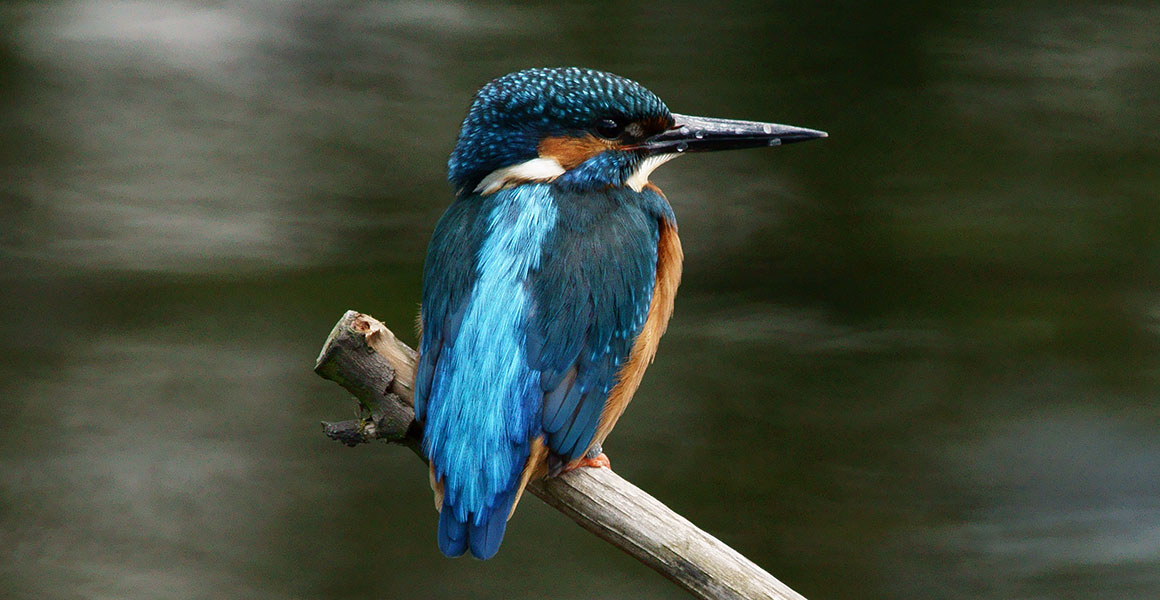


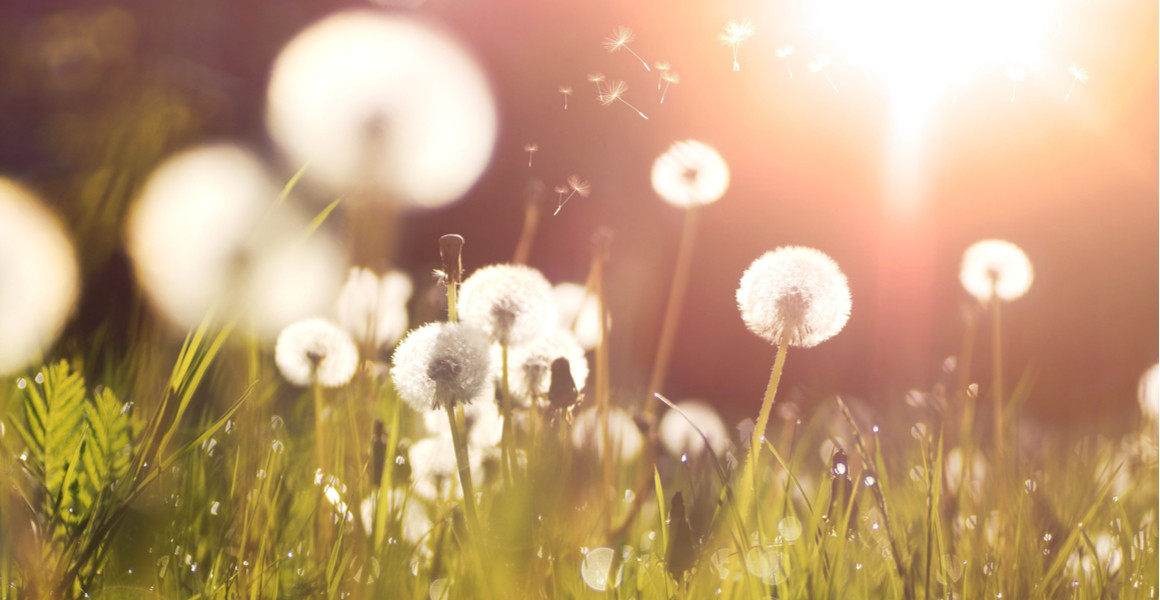
Don't miss a thing
Receive email updates about our news, science, exhibitions, events, products, services and fundraising activities. We may occasionally include third-party content from our corporate partners and other museums. We will not share your personal details with these third parties. You must be over the age of 13. Privacy notice.
Follow us on social media